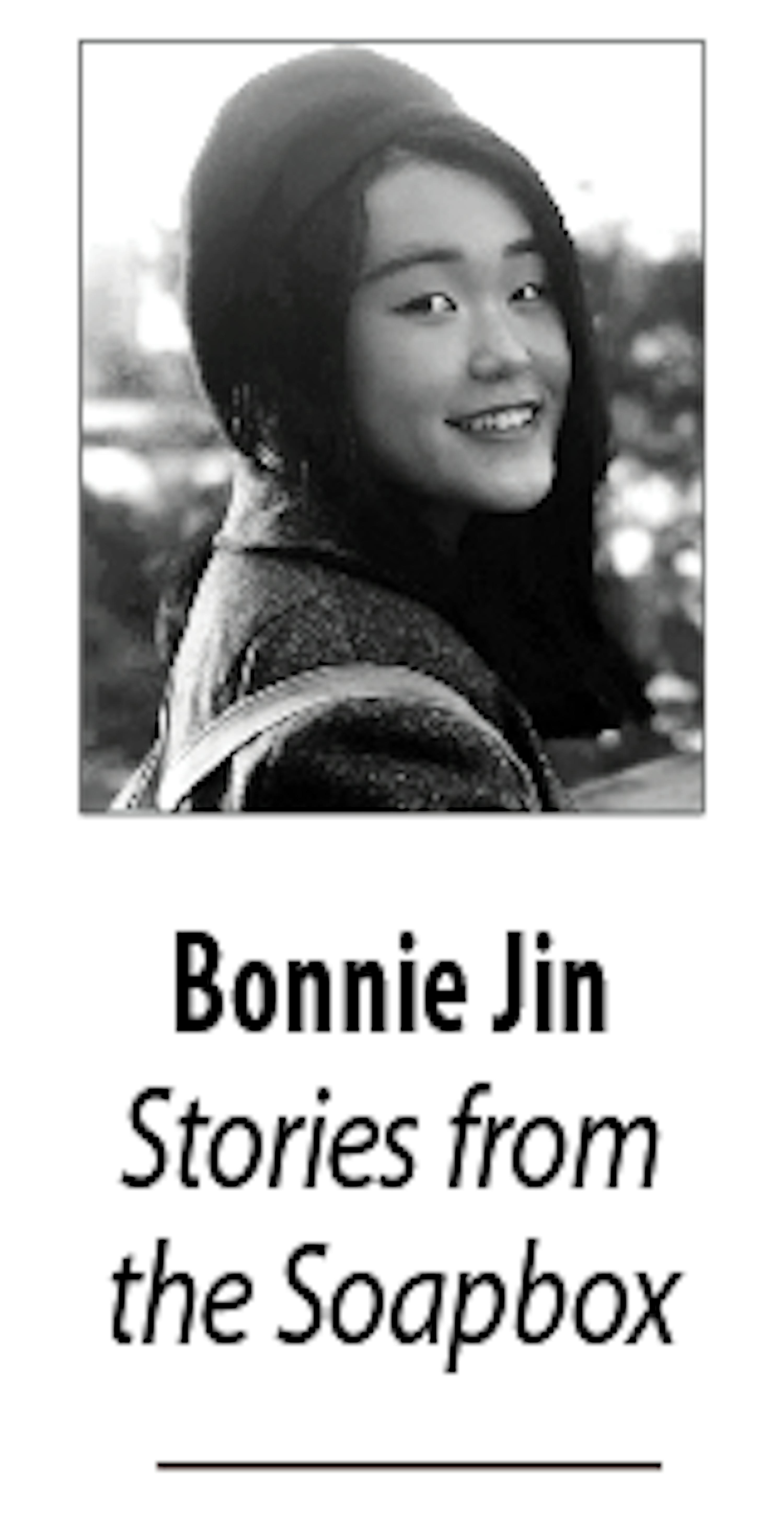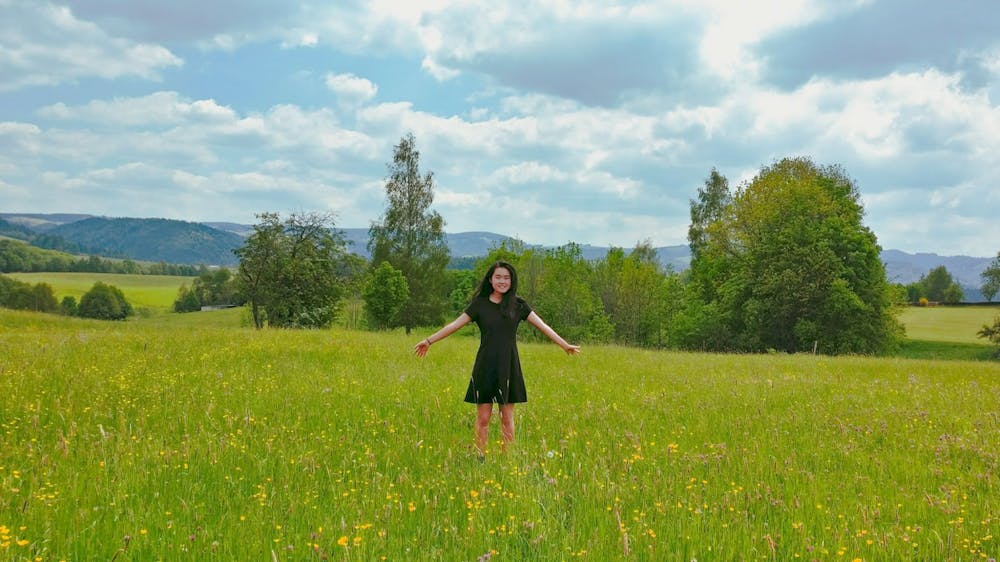
I. For as long as I could remember, Christmas was always spent locked in a Chinese restaurant; tasked with scooping rice into take-out boxes, I dreamt of escaping that small storage room through the glass window, entering the parallel universe of snow outside.
My home contrasted the American suburbia outside, blaring broadcasts of Taiwanese pundits debating elections, filled with the wafting smell of rice wrapped in bamboo leaves.
Red was the qipao I wore on New Year's; red were my mother's hands, calloused with years of kneading dumplings on weekend nights, smiling in the face of linguistic misunderstandings.
Growing up Taiwanese American in a predominantly white community, Taiwan was a secret I’d always kept with me.
Though I’d never lived there before and rarely interacted with any Taiwanese my age, I had pieced together from my parents’ conversations, my Chinese school teachers and Taiwanese dramas some idealized vision of Taiwan: a place where people that looked like me were the majority. A place where people like me could become rock stars and politicians, filmmakers and activists.
II. The self I presented at school lacked the crimson tradition of home. Consumed by economic anxiety and working to help my family, I was tired, blue and unable to participate in the activities of my friends.
To this day my plans for Christmas break — a full work week — were kept a secret from my classmates. No one knew about my prohibited escapades to the bookstore near work to seize the newest copy of Chomsky, read between barrels of flour and soy sauce.
If you came to our restaurant, you’d never suspect the team of cousins working behind kitchen doors to help with packing take-out, my two grandparents standing by the stove for tens of hours cooking pork fried rice, or the mothers who knew how to run the cash register, take orders and fry chicken wings all at the same time.
I think I spent five years living this kind of life. It was tiring, but when you see the faces of everyone else in your family working hard and putting their all into making every part of the restaurant process work, and especially when you get to eat a whole buffet by yourself after a long work day — you feel like it’s okay.
But it couldn’t last. I started having panic attacks and what I can now recognize as symptoms of depression.
Mental health isn’t something that’s talked about often in the Asian community, and even when I was helping other members of my family deal with their depression, I failed to notice my own.
One day I saw two students from my high school try to dine and dash at our restaurant.
I don’t know why, but in the moment I chased after them, running into the slush-filled parking lot outside, I knew that I wanted to change.
I realized that despite the obligations I had to my family and the understanding I wished for from my classmates and family, what was really the most important was time to myself. I needed to escape my blue-red lifestyle. Maybe someone like me could do so much more.
III. So I went to Germany. I milked cows in the lush greens of the Black Forest, marched around Freiburg with a purple sign in support of refugees and ate a thousand golden shades of potatoes.
I brought with me my Democratic blues, organizing for Senator Sanders despite the physical distance from America, and the crimson hues of my proud tradition, teaching my host sister how to fold the centers of red bean buns into ribbons.
Interning at the city center, I did translations on how the issues of American foreign policy would affect the farmers in the Black Forest, and when the integration process of Syrian refugees into the classroom began, I assisted families to Germany, just as I had done only months prior.
During the last month of my program, I was recognized before the German Parliament to speak on behalf of the Department of State's Congress-Bundestag Youth Exchange Scholarship program. In the clearest German I could muster, I urged politicians to further intercultural understanding among nations.
I thanked them for the opportunity they had given me, a girl who'd always spent Christmas break dreaming of escaping outside. On Christmas, as we sang “Stille Nacht” on a small forest farm, I suddenly remembered that other self, who'd woken up earlier to work at the restaurant, who saw life through a red house with blue windows. I wondered how she felt.
IV. Living abroad made me realize that I needed a genuine challenge to my daily routine: I needed the challenge of independence, of language, of a new atmosphere, to prove my personal potential.
Germany gave me a moment of true meaningful work, truly immersing myself in the moment of milking a cow at five in the morning, or understanding the impact of teaching German to the Syrian refugees (who laughed at my lame English jokes).
Germany taught me a sense of social responsibility. It taught me that as a human who understands that a more just society is possible not only in my own country but around the world, it's my responsibility — as someone with that privilege — to further human progress and fight against oppression.
And above all else, I saw all the different selves I am capable of being — in every part of Germany I recalled the lives of thousands of other "me's" that lived in Taiwan, in Boston, in Germany — in cooking, in activism, in dialect, in English.
I saw my primary colors of blue and red diverge into a myriad of reflections and colors; I'm free to be anyone I'd like to be.
And as I serve customers this Christmas, I wonder which self is reflected in their eyes — blue? Red? The rainbow, perhaps?
Because now, I can only see the world through a prism of pure color.





